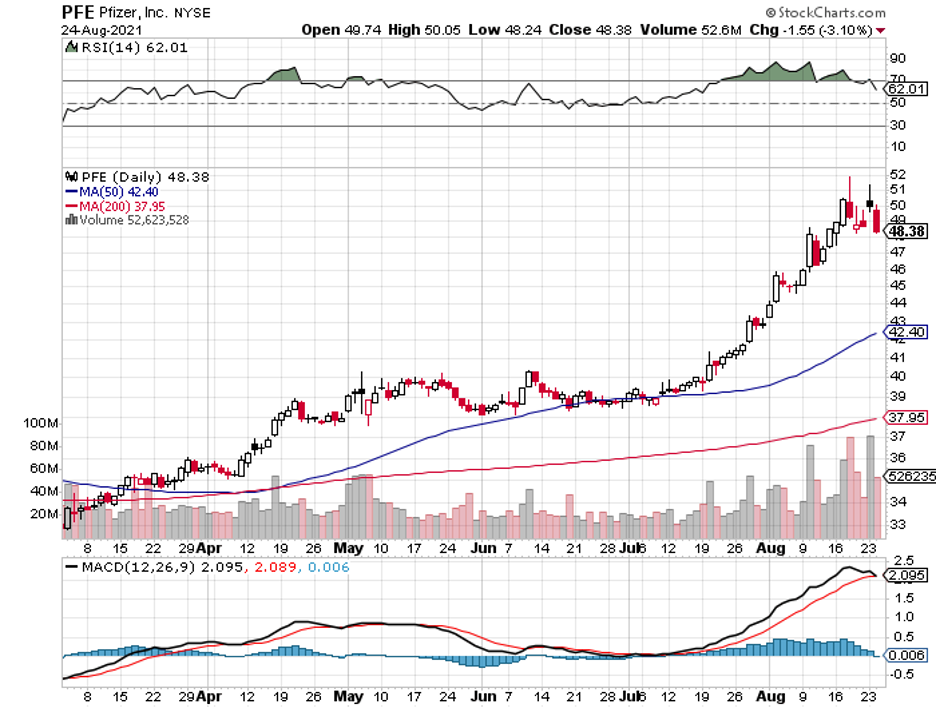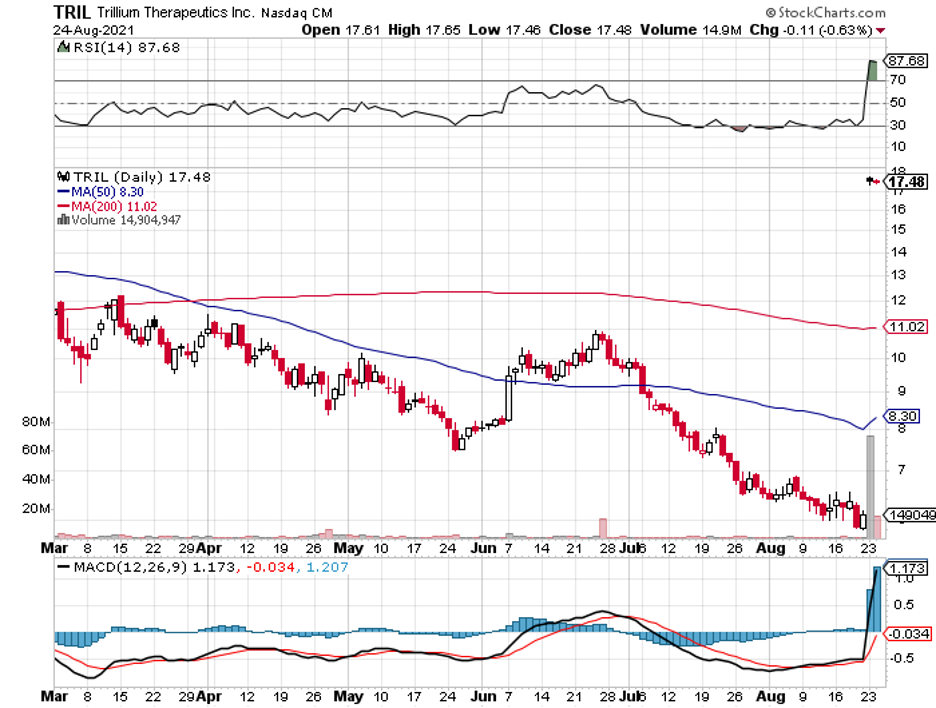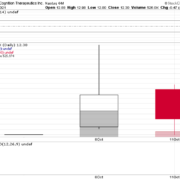Another Foretold Acquisition
Another one of my predictions came true.
Last December, I wrote about the impressive potential of Trillium Therapeutics (TRIL) in my letter, titled “The Most Famous Cancer Stock You’ve Never Heard of,” and predicted that it’s going to be an attractive acquisition candidate soon.
Earlier this week, it finally happened.
Leveraging its extra cash from Comirnaty, the COVID-19 vaccine it developed with BioNTech (BNTX), Pfizer (PFE) has decided to push through with acquisitions instead of pursuing buybacks.
And the candidate at the receiving end of this cash flow is none other than one of my buyout candidates last year: Trillium Therapeutics.
The $2.3 billion acquisition was an excellent deal for Trillium, with Pfizer buying the cancer-centered biotech at a 118% premium over the stock’s average price in the past 60 days.
Given that Trillium stock closed at roughly $6 per share before the announcement, the deal practically tripled its worth at $18.50 each.
The price signifies Pfizer’s willingness to pay up to take over Trillium pipeline and portfolio after initially investing $25 million in the smaller company in 2020.
Trillium shares also skyrocket by 188% following the announcement of the deal.
The plan is for Trillium Therapeutics to bolster Pfizer’s oncology and hematology portfolios, with a focus on blood-related cancers.
This recent turn of events has been long awaited by Pfizer investors.
After all, the last time the company exceeded expectations was during its Viagra-driven frenzy era back in the late 1990s. Since then, the stock has been underperforming the S&P 500.
Unquestionably, Pfizer’s work on the COVID-19 vaccine helped the stock recover.
In its second quarter earnings report, Pfizer posted $7.8 billion in sales for Comirnaty alone. This brought the company’s total revenue to roughly $18.7 billion, showing off an 86% boost year over year.
However, even without Comirnaty’s contribution, Pfizer’s revenues still managed to rise.
Through the first six months of 2021, Pfizer’s revenue has reached $33.5 billion—up by 68% year over year. This is impressive considering that it followed the Upjohn spinoff with Mylan, which later became Viatris (VTRS).
Even without the COVID-19 vaccine, Pfizer still has promising growth prospects involving its core businesses.
For one, it has a number of blockbuster drugs that can easily become strong revenue streams for years to come.
For example, Prevnar sales grew by 34% year over year to reach $5.85 billion, pushing Pfizer’s oncology segment to climb by 16%.
Another blockbuster in the making is blood clot treatment Eliquis, which grew by 13% from the $5 billion in sales it generated in the second quarter of 2020.
As for its biosimilars, these notched a bit to more than $1.5 billion in sales last year and recorded a whopping 88% growth year over year thanks primarily to the newly released cancer drugs Zirabev, Ruxience, and Trazimera.
Meanwhile, heart failure treatment Vyndagel, which generated roughly $1.3 billion in 2020, reported an impressive 77% climb year over year for its $501 million in sales in the second quarter of 2021 alone.
Another heavy hitter in Pfizer’s portfolio is kidney cancer medication Inlyta, which reported $800 million in sales in 2020. For the second quarter of this year, the sales for this drug is up 29% year over year, with $257 million.
Management also boosted the company’s guidance from $70.5 billion to $72.5 billion.
Then, it raised it again to $78 billion, then once more to $80 billion. As for its COVID-19 vaccine sales, it increased its estimates from $26 billion to $33.5 billion.
While the sales from the COVID-19 vaccine definitely provided a comfortable boost for the company, its own portfolio of drugs demonstrates the capacity of its core business to drive revenues on its own.
Considering the FDA approval and support for the additional third booster shot, though, I anticipate that Pfizer will continue towards this path of acquiring smaller biotechnology companies in the foreseeable future.
In terms of other clinical-stage biotech firms potentially up for grabs next, the work of ALX Oncology (ALXO) has recently been put under the spotlight as it relates closely to Trillium’s cancer-centered technology.



